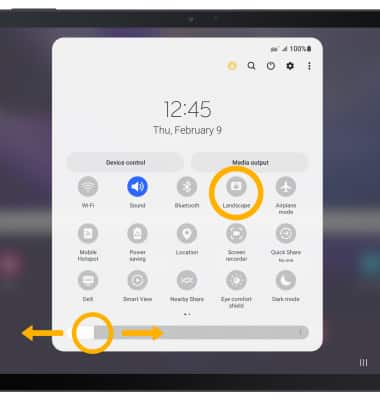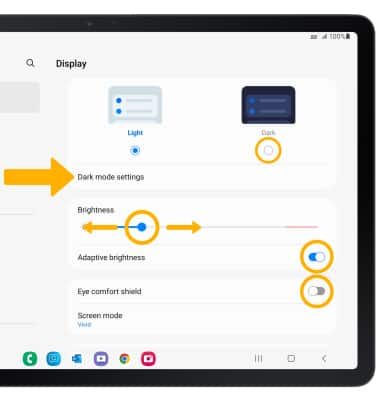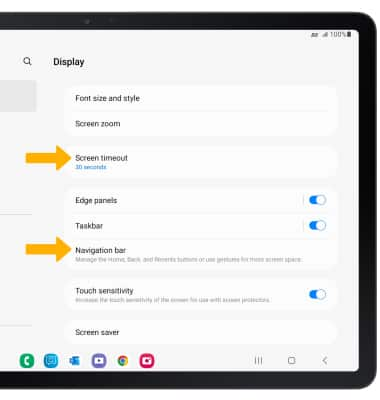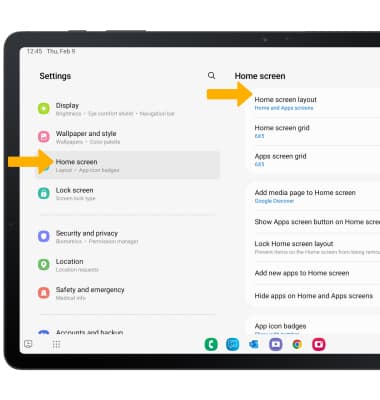In this tutorial, you will learn how to:
• Access display options through Quick Settings
• Access display options through settings
• Edit home screen display
Access display options through Quick Settings
Swipe down from the Notification bar to access Quick Settings. Swipe down from the Notification bar twice to access Expanded Quick Settings.
DISPLAY OPTIONS: Select the desired option to enable or disable the display option. You can also select and hold certain display options to access their settings.

• AUTO ROTATE: Select Auto rotate. When enabled, Auto rotate will automatically rotate the device's screen orientation depending on how you are holding it. This feature is disabled on the home screen by default. When Auto rotate is disabled, the Portrait icon or Landscape icon will be displayed in Quick Settings.
• SCREEN BRIGHTNESS: Select and drag the Brightness slider at the bottom of the Quick Settings menu to the desired brightness level.
Access display options through settings
1. Swipe down from the Notification bar, then select the ![]() Settings icon.
Settings icon.
2. Select Display. Scroll to and select the desired switch to enable or disable the desired display option. You can also access the settings for certain display options by selecting the name of the desired display option.

• DARK MODE: Select the Dark mode circle. Select Dark mode settings to edit settings as desired.
• SCREEN BRIGHTNESS: Select and drag the Brightness slider to the desired brightness level.
• ADAPTIVE BRIGHTNESS: Select the Adaptive brightness switch.
• EYE COMFORT SHIELD: Select the Eye comfort shield switch.

• SCREEN TIMEOUT: Scroll to and select Screen timeout, then select the desired option.
• ADJUST NAVIGATION BAR LAYOUT: Scroll to and select Navigation bar, then adjust as desired.
Edit home screen display
From the Settings screen, select Home screen to edit the Home screen grid, App screen grid, and more. Edit Home screen settings as desired.

